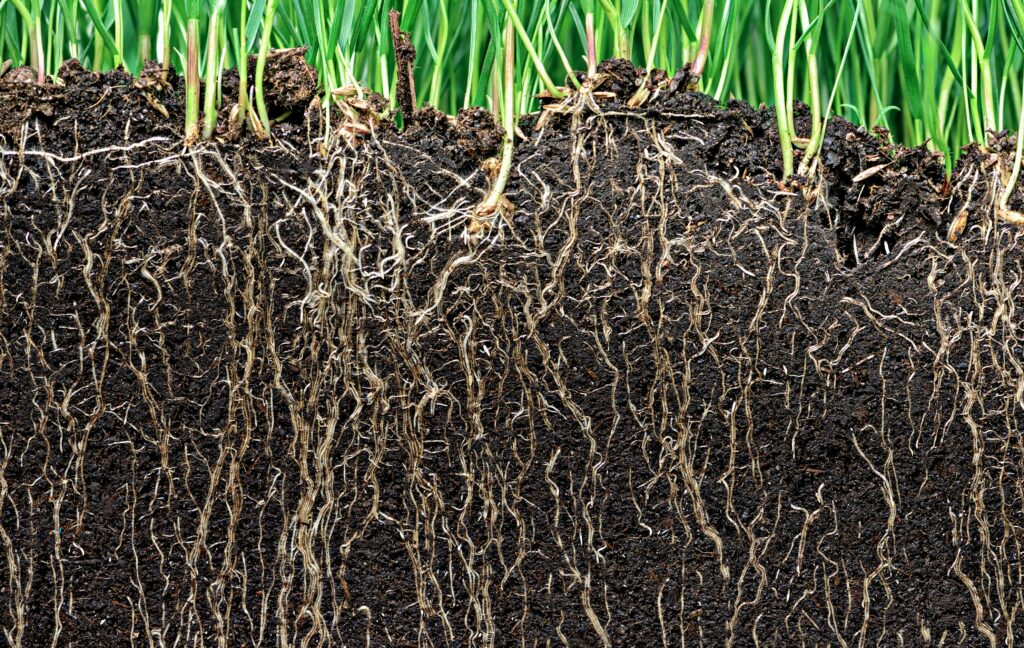In the realm of sustainable agriculture, the significance of soil biology in crop nutrition cannot be overstated. Soil is not just dirt; it is a dynamic living matrix that acts as the foundation for plant growth, serving as a reservoir for essential nutrients, water, and providing a habitat for a myriad of diverse microorganisms. The intricate interplay between nutrition and soil biology is a constantly evolving subject that holds the key to enhancing crop yields, improving food quality, and mitigating environmental impacts.
At the heart of soil biology’s role in nutrition is the soil microbiome – a complex and diverse community of bacteria, fungi, archaea, and other microorganisms that inhabit the soil. These microorganisms play a pivotal role in nutrient cycling and availability, shaping the health and productivity of our agricultural ecosystems.
Modern agriculture has witnessed a surge in innovative practices that harness the power of soil biology to optimise nutrient availability while simultaneously reducing the need for synthetic fertilisers and minimising environmental impact. Some noteworthy approaches include:
1. Biofertilisers: Biofertilisers contain beneficial microorganisms like nitrogen-fixing bacteria and mycorrhizal fungi. These microorganisms work in harmony with the soil microbiome to enhance nutrient availability and reduce reliance on chemical fertilisers, contributing to soil health and long-term sustainability.
2. Microbial Inoculants: These are specific strains of microorganisms introduced into the soil to promote nutrient cycling, disease suppression, and overall plant growth. By adding plant growth promoting bacteria and fungi, microbial inoculants support sustainable crop production and reduce the need for agrochemical inputs.
3. Precision Agriculture: In the age of digital agriculture, advanced sensors, data analytics, and automation are being employed to monitor soil conditions in real-time. This allows for precise nutrient application and irrigation management, optimising resource utilisation and minimising waste.
4. Crop Rotation and Cover Cropping: Implementing diverse crop rotations and cover cropping practices can have profound effects on the soil microbiome. These practices promote a healthier and more diverse microbial community, improving nutrient cycling, soil structure, and overall soil health.
A Transformative Solution for UK Growers
Gaiago, a forward-thinking soil specialist, has introduced a revolutionary product tailored to the needs of UK growers – Free N100. This innovative solution is now certified for use in both organic and conventional farming*, offering a straightforward remedy to some of the pressing challenges faced by modern agriculture.
Free N100 contains Azobacter Chrocoocum, a remarkable microbe that doesn’t leach, rendering it exempt from inclusion in fertiliser calculations. Scientific studies have consistently shown that Free N100 provides nitrogen precisely when crops require it, making this timely nutrient delivery a game-changer for growers seeking both productivity and sustainability.
Gaiago’s innovative solution reflects their commitment to restoring and reinforcing the mineral and biological equilibrium of all soils while addressing three key dimensions of performance:
Agronomic Performance:
- Compensates for the limited bioavailability of alternative nitrogen sources.
- Provides self-sustaining and robust nutrition.
- Mitigates the risk of nitrogen deficiency.
- Promotes root growth, ensuring the viability of initial growth stages.
Economic Performance:
- Enhances yields across various crop categories, including field crops, specialty crops, and industrial crops.
- Safeguards protein levels, maintaining the quality of agricultural products.
- Offers the potential to reduce fertilisation while preserving yield levels, resulting in cost savings for growers.
Ecological Performance:
- Represents a natural source of non-volatile and non-leachable nitrogen, minimising environmental impact.
- Suited for sensitive and protected regions, supporting sustainable practices in ecologically fragile areas.
- Contributes to lower greenhouse gas emissions throughout the production and utilisation cycle, aligning with broader environmental sustainability goals.
In conclusion, the connection between nutrition-based soil biology and sustainable agriculture is a critical facet of modern farming practices. Understanding the intricate details between soil microorganisms and nutrient cycling processes allows us to optimise crop production while mitigating environmental impacts. As we continue to explore and uncover the complexities of soil biology, the future of agriculture holds promise in fostering healthier soils, increasing crop yields, and creating a more sustainable and resilient food system.
Gaiago’s range of products is available to purchase from Farm Deals or if you would like to speak to us in person contact, Country Manager for UK & Ireland, Mark Shaw on mark.shaw@gaiago.eu . In addition, if you are attending this year’s CropTec Show on the 29th & 30th November make sure you come and visit us on stand no 500, we look forward to seeing you there.
*Probiotic solution for use in organic farming in accordance with (EU) regulations. Gaiago’s commitment to sustainability extends to both organic and conventional farming methods.



